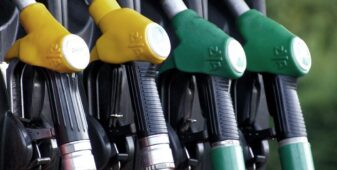Top Stories
- Petrobras raised fuel prices last week
- Parliament approves capping ICMS tax on fuel, electricity at 17%.
- Senate approves constitutional amendment on biofuels
Fuel Prices Raised
Last Friday, Petrobras confirmed market expectations and approved rises in gasoline and diesel prices, which came into effect last Saturday. The news, however, was not enough to reverse the downward trajectory of the company’s shares.
Trying to reverse the upward trajectory, the Chamber of Deputies approved this week the vote on Senate amendments to the complementary bill (PLP) 18/2022, which includes sectors such as fuel and electricity among essential services, limiting the ICMS rate on them to 17%. The text will now go to the president for approval.
The Senate also approved the constitutional amendment on biofuels, which provides for a 12% reduction in ICMS on ethanol and biodiesel, to maintain their competitiveness against fossil fuels.
For Economy Minister Paulo Guedes, the reduction in the rate offers “wiggle room” and, even if costs rise, the margin means there doesn’t always have to be a price rise.
The International Energy Agency pointed out that as prices rise, there is no expectation of reduction of the oil demand until 2023. Demand is expected to reach 101.6 million barrels a day in 2023, with growth driven by China, which is expected to increase demand to 2.2m b/d this year.
📰 There was no lack of news related to these subjects in recent days, check out other highlights:
Changes by Cpamp would have raised the PLD to R$ 249.1/MWh in January
Power reserve auction plants try to circumvent the effects of delays
Shutdown of thermal plants in RO will reduce costs to Brazilian consumers by R$ 500 million
CCEE overturns Apine’s injunction on GSF, but Queiroz Galvão’s judicial recovery complicates payment
Winds of Change
Last week Wind Day was also celebrated, and there was no lack of news about wind generation at MegaWhat, especially about the prospects for offshore technology.
The expected regulatory framework was the main topic of the Brazil Offshore Wind Summit 2022, which brought together around 400 people, including executives, industry representatives, sector leaders and government officials in Rio de Janeiro.
During the event, the technical advisor to the Energy Planning department of the Ministry of Mines and Energy, Karina Souza, said that the government was working on an ordinance to improve the rules, but that there is no deadline for the publication of the document. A month ago, at another event, Marcello Cabral da Costa, deputy secretary of the department, had said that the ordinance was ready for publication.
While the market believes that the ordinance will be essential to establish legal certainty, the government of Rio de Janeiro calculated that projects at the environmental licensing stage should lead to an investment of USD 85 billion in the state. And Corio Generation announced it was studying five projects in Brazil, totaling 5.3 GW, in partnership with Servtec.
Offshore generation should also lead to the development of other products. Shell is already discussing with the industry a demand for hydrogen and ammonia.








